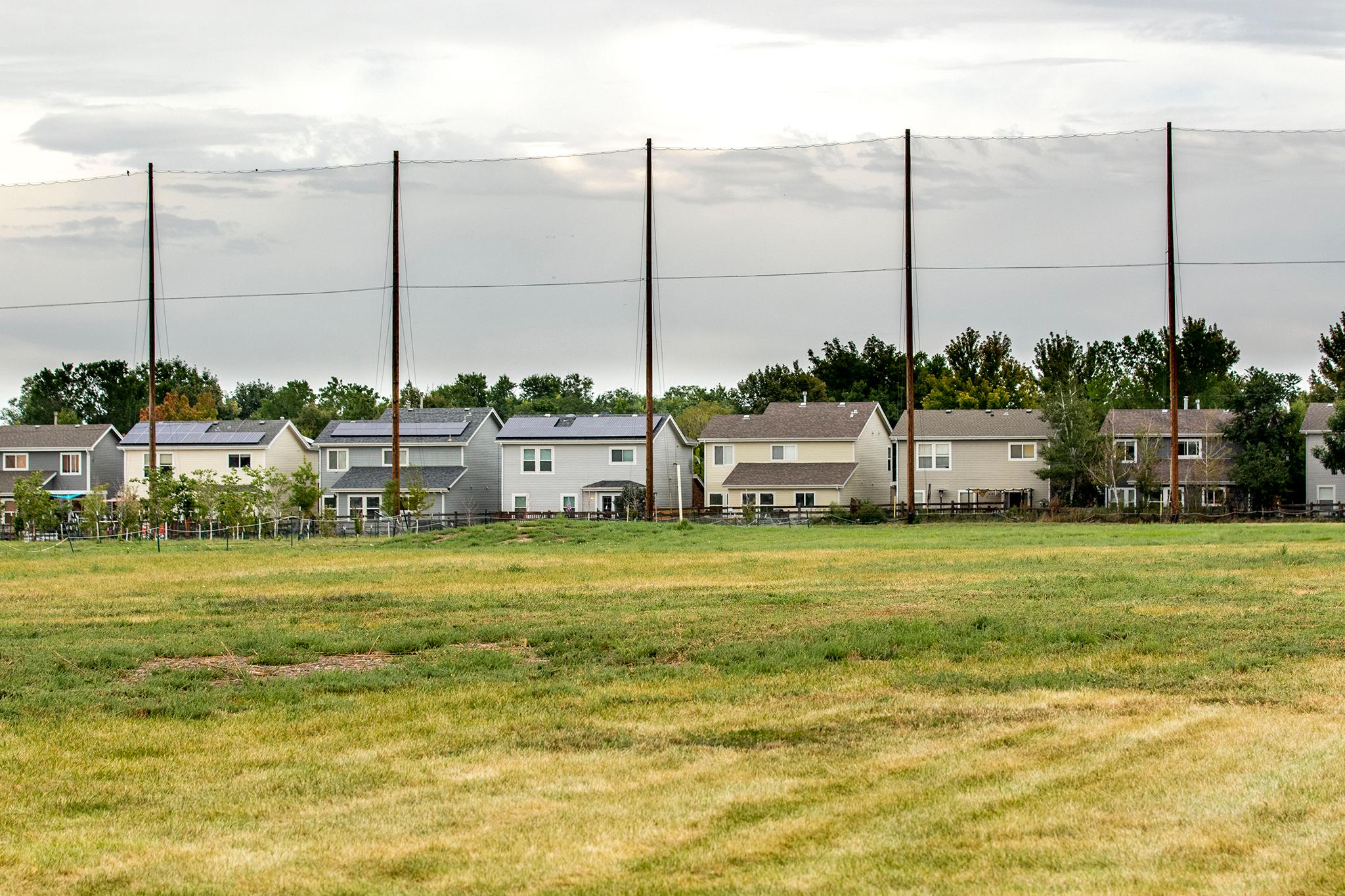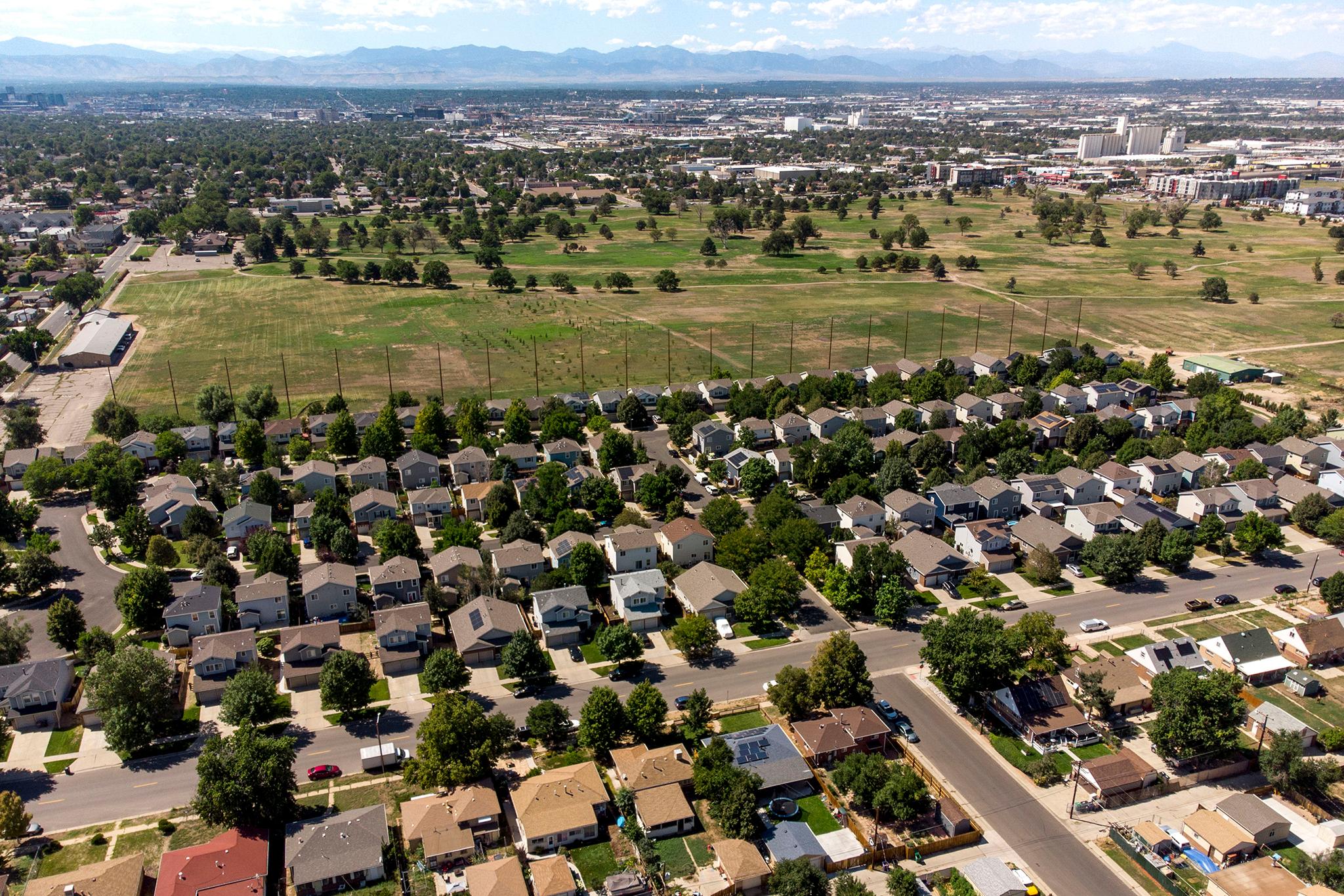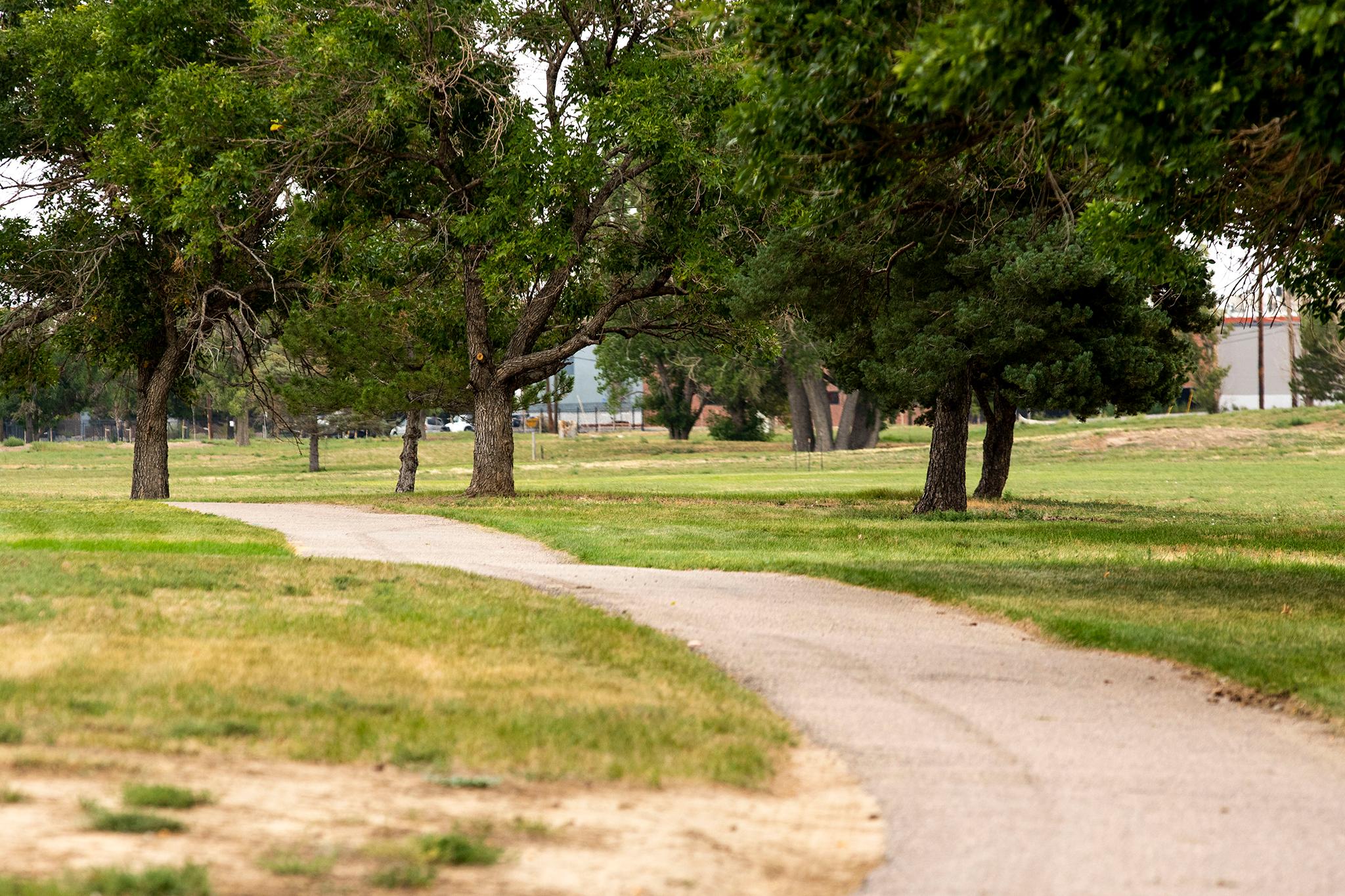Developer Westside Investment Partner's plans to turn 155-acres in Northeast Park Hill into a mix of residential, retail and park space crossed another hurdle Wednesday night.
The 11-member Denver Planning Board discussed both the Park Hill Golf Course Small Area Plan and new zoning that would make redeveloping the golf course possible at a public meeting that started at 3 p.m. and stretched until almost midnight. After hearing from dozens of local residents, including many from Northeast Park Hill, the board ultimately voted to recommend both items for City Council to debate.
Here's some of what's in the draft of the Park Hill Golf Course Small Area Plan the city released in September.
The plan recommends any new development on the former private golf course site include a minimum of 100 acres of parks, improve the tree canopy, address food insecurity, create room for small businesses and businesses owned by people of color, and build strategies to avoid displacing current residents.
There will be a main street, an art trail and multimodal transportation options. Pedestrians will be centered, but parking areas will also be included.
Buildings would be between four and 12 stories, with the tallest nearest to the 40th and Colorado A Line station, which is to the northwest of the golf course. And some new housing would have to be income-restricted. Westside has committed to 25%.
"For those seeking more publicly-owned, green and active open space in District 8, the plan recommends significant acreage of new, public parkland and open space," wrote District 8 City Councilmember Chris Herndon in the city's draft.
"For those concerned about longtime residents being involuntarily displaced, there are affordable housing provisions with priority for existing residents," Herndon wrote. "For those seeking to address a longtime food desert, the plan recommends space for grocery and fresh food choices, along with space and support for small, locally-owned businesses."
While a grocery store has been long desired, since both King Soopers and Safeway left Northeast Park Hill decades ago, a grocery store would not be guaranteed.
"It's rare to have the opportunity to reimagine 155 acres of underused private land in the heart of our city, and to have the chance to apply the community's wishes to what happens next," Herndon wrote in the draft. "I am proud of the District 8 neighbors and Denver city planners who worked together in good faith, crafting plan that meets the moment in a thoughtful, equitable and sustainable way."
The public has had the chance to weigh in on the draft in recent weeks.
But just because planning and zoning is moving forward, doesn't mean the project's guaranteed to be built.
The Park Hill Golf Course, which is bordered by Colorado Boulevard, 35th Avenue and Smith Road, is protected as an 18-hole golf course by a conservation easement Denver voters passed in the '90s.
The land was once owned by George Clayton, an early Denver businessman, City Council member and philanthropist, who dedicated his wealth, after he died, to the creation of the Clayton Trust, which built an orphanage for impoverished white boys. The 155 acres was used as a dairy farm, where those orphans worked. Later, it became a private golf course.
The 155 acres have sat empty since 2018, when it quit functioning as a golf course. In 2019, Westside purchased the land and the conservation easement for $24 million from the George W. Clayton Trust.
But the purchase did not dissolve the easement, which currently prevents the land from being developed. State law would require the easement to be left in place unless a judge determined that running the land as a golf course was no longer feasible.
After the issue was weighed in two competing ballot measures in 2021 -- one from open space advocates and the other from the developer -- overturning a conservation easement became even harder. Now, doing so requires a vote by the people of Denver.

Some in the community say planning and rezoning the land without lifting the conservation easement is illegal, but the city attorney's office maintains the easement does not prohibit either planning or zoning activities -- just development itself.
Westside and Community Planning and Development are betting that the conservation easement will be removed and the 155 acres can be developed. So Community Planning and Development launched a visioning process in January 2021, that solicited input from more than 1,000 Denverites, including many people living within one mile of the golf course.
Denver heavyweights like former Mayor Wellington Webb and former State Representative Penfield Tate III have been outspoken critics of the redevelopment, rallying under the banner Save Open Space Denver.
After advocates sued the city to stop the development process in June 2021, a judge tossed the lawsuit out in February.
The process was also criticized after Community Planning and Development axed open space advocates, including former and now current mayoral candidate Lisa Calderón, from the planning committee.
Westside's development plans have been sullied with legal trouble, including a lawsuit from Sisters of Color United for Education. The nonprofit sued the developer in May over an agreement for Sisters of Color to pay for work on the Park Hill Golf Course clubhouse in exchange for use of the facility, as Westword reported. The developer, and its partner the Holleran Group, limited the organization's use of the space, despite Sisters of Color paying around $200,000 for the work.
Through it all, the planning process for the Westside development continued.
On Wednesday night, the Denver Planning Board listened to dozens of people on both sides of the redevelopment.
Many were from Northeast Park Hill, a historically Black community that has experienced a glut of racist housing policies and disinvestment from businesses.

Supporters of the plan said Westside's development would create affordable and attainable housing, preserve guaranteed park space, ensure the land was accessible to the public, and bring business to a neighborhood that has suffered from underdevelopment.
Opponents said the plan would cause traffic and parking problems, destroy some of the last open green space in the city, worsen displacement in the neighborhood by raising property values, and would turn the land into the "RiNo East all along 40th Avenue."
All of the Planning Board members in attendance voted in favor of the Park Hill Golf Course Small Area Plan and zoning changes that would permit development.
City Council will now debate and vote on the plan and zoning code change, and the mayor would ultimately have to sign off.
But none of that will mean anything without a vote from the people.
Westside has indicated it would float a ballot measure in 2023 so the public can determine whether the land can be developed. That date has not been finalized.
Correction: An earlier version of this story misstated the 40th and Colorado A Line stop's directional relationship to the golf course. We regret the error.











